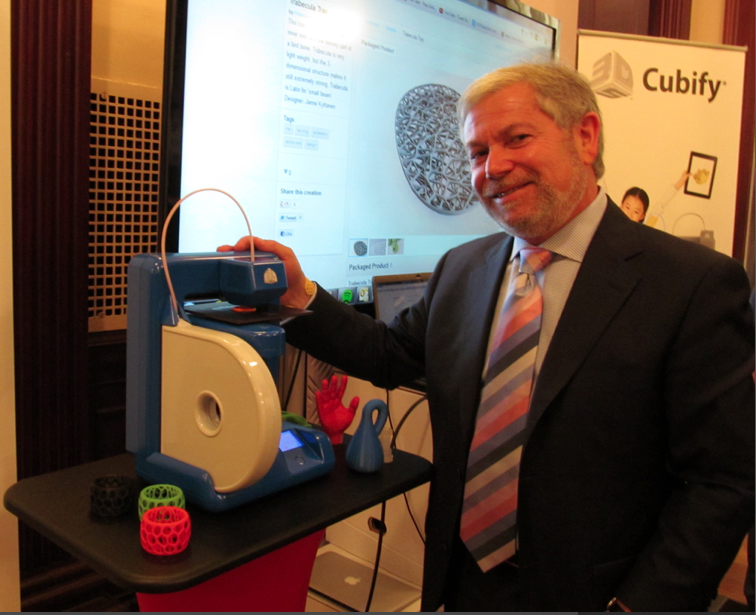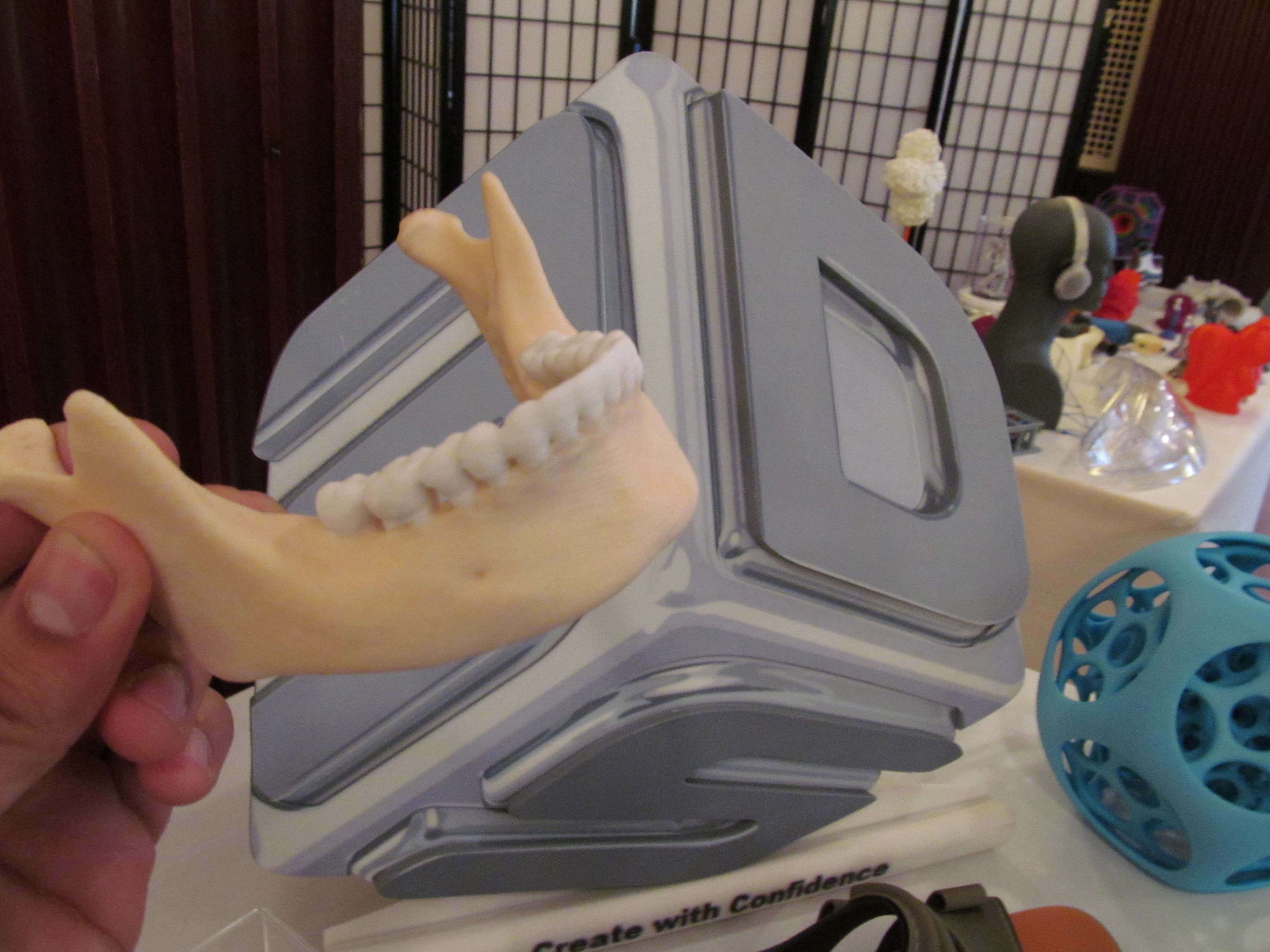
“3D printing will be the canvas of the 21st century.”
That’s the prediction being made by Abe Reichental, the CEO of 3D Systems and biggest cheerleader of the Cube, his company’s first 3D printer built with the mass market consumer in mind.
While 3D Systems more or less created the industrial side of the 3D printing business, the Cube is its foray into a more fledging, uncertain side of the industry.
Reichental, however, is certain of his goal: To democratize creativity. “My assertion is that everyone can be creative if you remove all the friction and intimidation,” Reichental told VentureBeat at a press event in New York City.
That friction comes in two forms. One form, of course, is price, which is a problem for any emerging industry. The Cube, for example, will run for $1299 when it’s released this month, and rival MarkerBot’s Replicator already runs for $1700. Those aren’t nearly mass market prices, which is a reality Reichental seems to recognize.
“The prices will come down. It’s inevitable that in the next year or year-and-a-half prices will be half of what they are today, and then come down again,” the CEO said.
That, of course, is a given. Prices always decrease as industries mature and manufacturing ramps up. But Reichental’s notion of democratization is more than just lowering prices. He also aims to make it vastly easier for users to create objects and share them with others.
“There are very few artists around the world that can start painting on a blank canvas, but there are millions of people who can use a coloring book,” he said.
And it’s that very same coloring book experience that 3D Systems aims to replicate with the Cube and Cubify, its online portal where users can upload and share their creations.
So are we seeing a potential market on the scale of the microwave? “Yes, absolutely,” says Reichental, who compares his efforts to what Apple’s iPad did for the tablet market: Make the experience easy and affordable and consumers will notice and respond. And that they’ve done. Users have already created objects as varied as belts, shoes, and cell phone covers — among much, much more.
Reichental, too, has had a hand at the creation process. During our interview he wore on his wrist an iPod Nano encased in a yellow 3D-printed strap. “I thought people would do toys and collectibles, but what I see is that most people are doing things like what I’m doing” he said,” pointing to his wrist. “They’re accessorizing.”


